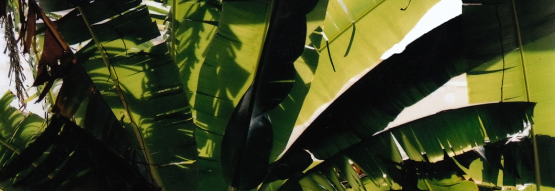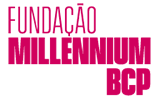Sustainability is the motto of FUSO 2019, understood as the respect for the environment and cultural and social diversity, within a righteous and consequent economic growth.
The art field has been wondering about its role while searching for new relevant postures to face these challenges. What changes of attitude and functioning would be suitable to artists, curators, art critics, gallery owners and collectors in their individual and institutional aspects?
by Tom Van Vliet
Floris Kaayk’s work focuses on futuristic concepts and fantasies, and visualises technological progress, sometimes by demonstrating its advantages and at other times by presenting negative consequences.
Kaayk became known with his fictional semi documentaries The Order Electrus and Metalosis Maligna. His animated films have received several international awards. In 2011, The Origin of Creatures was selected as the Dutch entry for the Academy Awards in the Best Animated Short Film category. In that same year, Kaayk made headlines with a number of social media videos posted on the weblog of his alter ego, Jarno Smeets, who claimed to be the first human able to fly like a bird. International television stations used the images in their news programme.
Another project was Rayfish Footwear (2012), a fictitious company and web shop that invited people to grow their own personalised sneakers using genetically modified stingray leather. A carefully prepared narrative was distributed via various media platforms, where it proved sufficiently credible for a loyal group of followers, who were eventually disappointed when the truth was revealed.
The experimental online project The Modular Body (2016 - 2019) visualises a future where a prototype of the human body has been designed and created using 3D printing and cell culture technologies. The videos featuring the central character Oscar – a prototype Modular Man made up of various self-assembly modules – are frighteningly realistic. In this project, Kaayk was clear about the fictitious nature of the images from the start while leaving room for viewers’ own interpretations and beliefs.
At the recent STRP festival in Eindhoven Floris Kaayk released his latest project: Next Space Rebels. Next Space Rebels is an innovative game about the democratising of the universe and the pursuit of an independent internet. Open source space-communities that develop rockets and satellites at low cost play a large role in the game. The aim is to bring the rockets into a lower orbit around the Earth and to transform space into a new public domain.
In 2014, Kaayk won the de Volkskrant Visual Arts Prize for his animated films and semidocumentaries. In 2016, his video for the song Witch Doctor by Dutch alternative rock band De Staat received numerous prizes, including a UK Music Video Award, an Edison Award, and a European Music Video Award. In 2016, The Modular Body won a Golden Calf Award at the Netherlands Film Festival in the ‘Best Interactive Work’ category. In 2017 Kaayk received the Witteveen+Bos award for Art+Technology for his complete oeuvre.
Session
48min
The Order Electrus, Floris Kaayk
2005, 7:20 min
The Order Electrus (2005) is a fictional documentary which shows Floris Kaayk’s imaginary world of industrialised nature, situated in a derelict area of the Ruhr (Germany). Due to overcapacity in production systems, many factories in Germany were forced to close down. Over the course of many years these derelict industrial areas became a breeding ground for an electrical insects species, also called The Order Electrus. These insects evolved through the merging with nature and technology.
Metalosis Maligna, Floris Kaayk
2006, 7:27min
The story of Metalosis Maligna is told in a fictional documentary about this disease, that effects patients with medical implants. Metalosis Maligna occurs when a metal implant interacts badly with human body tissue, causing the metal to grow tendrils, which eventually puncture the skin from within and causes parts of the body destroyed. The movie shows the development of the disease from its early stages through to the gory advanced stages, by which point entire sections of flesh have fallen away and all that is left is a skeleton of scrap metal.
The Origin of Creatures, Floris Kaayk
2010, 12:05 min
A futuristic vision of a world after a catastrophic disaster. In this dark parable mutated limbs are looking for cooperation, but due to miscommunication this mission is doomed to fail. The storyline of The Origin of Creatures is based on one of the most well-known tales about collaboration, the Tower of Babel. This tale is transformed and twisted and is set in an imaginary future, after the world is hit by a catastrophe. Among the remains of a devastated city lives that what is left of humanity. Human bodies are divided into separated parts of the body and are fused to special beings. Together, these creatures form a colony, they can only survive when collaborating. In the rubble of destroyed buildings they are trying to build a nest as large and as high as possible, so that the colony’s queen gets enough sunlight to reproduce, but due to miscommunication this mission is doomed to fail.
Juxtaposis, Floris Kaayk
2011, 3:59 min
Juxtaposis exposes the principle 'growth through battle', the mechanism that creates evolution in nature. Various organisms try to gain terrain by conquering parts of each other’s bodies. Through this battle they grow into more and more complex beings. Juxtaposis is produced in collaboration with Machinefabriek the alias of Rutger Zuydervelt. The music of Machinefabriek combines elements of ambient, noise, minimalism, drone, field recordings and electro-acoustic experiments.
The Rise and Fall of Rayfish Footwear, Floris Kaayk, Koert van Mensvoort & Ton Meijdam
2013, 7:10min
Rayfish Footwear creates personalized sneakers made from genuine stingray leather. The groundbreaking bio-customization technique allows you to design your very own transgenic Rayfish. Rayfish Footwear harnesses the beauty and variety of nature to create the world's first truly custom sneakers. With the online design tool, you can create a unique pattern for your own Rayfish stingray. Select elements from dozens of animal patterns and remix them into something nature could have never imagined.
Rayfish Footwear has been in operation for over a decade, raising stingrays in the Thai aquaculture facility. Rayfish Footwear is a family-run company with a long organic tradition in creating handcrafted shoes from stingray leather. In 2011, Rayfish Footwear successfully engineered the first fully bio-customized stingray. Each shoe is crafted according to the 'one fish, one shoe' principle.
2011, 3:46min
The transmedia story of Jarno Smeets. A young man who dreams flying like a bird and thinks he knows to make that dream come true. This portrayal of the ultimate flying dream reached millions of people and became worldwide headline news. The story reached over 10 million online views and 25.000 reactions on YouTube. The story was also covered by major media like BBC, Wired, Daily Mail, Gizmodo, TechCrunch, Discovery and many Dutch media. Over 30.000 tweets and near to 1.000 reactions to Jarno’s blog were counted.
The Modular Body, Floris Kaayk
2016-19, 5:32min
The Modular Body is an online science fiction story about the creation of OSCAR, a living organism built from human cells. The protagonist is Cornelis Vlasman, a versatile biologist for whom the path well-travelled is the most uninteresting one by definition.
Together with a few like-minded people he therefore starts an independent laboratory in which he experiments with organic materials. The primitive, vulnerable organism that finally results from Vlasman’s endeavours is OSCAR. The prototype, in the size of a human hand, consist of clickable organ modules. OSCAR is kept alive with blood taken from Vlasman and is continually vaccinated against infections, as it has no immune system. The story refers to various similar narratives in world literature and film history, notably Mary Shelley’s Frankenstein.
Floris Kaayk (1982)
Graduated summa cum laude from the animation department of AKV St. Joost academy of Art and Design in Breda, and gained a Master of Fine Arts degree from the Sandberg Institute in Amsterdam. In 2014, Kaayk won the de Volkskrant Visual Arts Prize for his animated films and semidocumentaries. In 2016, The Modular Body won a Golden Calf Award at the Netherlands Film Festival in the ‘Best Interactive Work’ category. In 2017 Kaayk received the Witteveen+Bos award for Art+Technology for his complete oeuvre.
At 11.15 pm:
Future Present
by Sandra Vieira Jürgens
The future is here, and taking as a departure point the theme of the Festival and the growing attention given to ecology politics in the cultural sphere and in the field of art and its institutions, this session will showcase work by contemporary artists who relate, through their work, to this historical time of transformation and environmental emergency, reflecting on its past causes and its future consequences as inseparable from economic, technological and socio-political questions. Future Present contains works which are linked to an ethical and critical approach, and to contemporary forms of resistance idealized by Francisco Pinheiro & Paulo Morais, Marcelo Felix, Nikolai Nekh and Nuno Barroso & Veronika Spierenburg, authors whose creative, investigative and reflexive practices expose themes from environmental crises and impacts, to labour rights and social justice.
Session
45 min
Anchor Cemetery, Nuno Barroso & Veronika Spierenburg
2018,18’21’’
Anchor Cemetery (Cemitério das Âncoras) is a collaborative film project from Veronika Spierenburg and Nuno Barroso. The starting point is the ‘Anchor Cemetery’ to be found at Barril's Strand, Algarve. There several hundred heavy anchors have been planted in the sand and abandoned, to bear witness to the tuna fishing industry which once flourished there, then declined in the last century due to overfishing.
The artists’ still observations generate a visual ethnography of today's artisanal fishing, equally guided by the sculptural qualities of natural and man-made constructions that define the coast.
Veronika Spierenburg
Studied Design at the University of Basel following a Bachelor in Photography at the Gerrit Rietveld Academy in Amsterdam and completed her studies with a Fine Art MA from Central Saint Martins College in London.
Nuno Barroso
Has a degree in Environmental Sciences from Nova University of Lisbon. He studied documentary photography at Kameraphoto collective and Photography and Contemporary Art at Atelier de Lisboa.
Dominion, Marcelo Felix
2019, 12’
The invisible in the routines of beings and things, the immeasurable dimension of each choice, the origin and the destination of memory: impressions of a restless, frantic, vulnerable day, between the nostalgia of the distance which resets perspective (such as that of Caspar David Friedrich in Wanderer above the Sea of Fog) and the daily immersion in the multiple proximity of chaos. The impossible organization of that day, Dominion (Domínio) is a glimpse into its gestures of discreet subversion, and also a brief reminder of the attrition of the world, made of fragments of the past and the future.
Director: Marcelo Felix
Collaboration: Pedro dos Reis, João Cardoso Ribeiro and Raquel Jacinto
Marcelo Felix
Filmmaker, directed Eden's Ark (2011), Flower and Eclipse (2013), A Mare (2014), Paul (2016), In Latitudes of the Future (2017).
Birdfishbird, Francisco Pinheiro & Paulo Morais
2017, 7’10’’
This video incorporates a set of sound pieces which resulted from research done around birdsong, particularly that of species at risk of extinction. Using this research as a basis, and re-appropriating leftover objects from industry, Francisco Pinheiro and Paulo Morais developed a series of videos in dialogue with the Almansor River.
Performance: Francisco Pinheiro
Camera: Paulo Morais
Francisco Pinheiro (Lisbon, 1981)
His work stems from collective narratives associated with a certain territory: the question of the drought in California, or the disappearance of the Aral Sea, invoked in installations, texts and performances. He has a Master Degree in New Genres from the San Francisco Art Institute (2014) and a Bachelor Degree in Painting from the Faculty of Fine Arts of the University of Lisbon (2005).
Paulo Morais (Paris, 1977)
Idiosyncratic artistic work, centred on the synergy of sound and visual agents. The fruits of this work have been presented in the form of performances, sound installations, photography and video, in spaces such as the Orlando Ribeiro Library, Avenida 211 and ZDB. During his journey connected to percussion, he has participated in projects such as the musical group Tumbala.
Meio Corte, Nikolai Nekh
2014, 7’02’’
Half-cut (Meio Corte) is a wondering process about the efficiency of public transport strikes in Portugal during the so-called period of the financial crisis.
Taking some issues to a certain degree of absurdity, another way of reclaiming work conditions is proposed. However, there is no way to go through it empirically, this struggle happens in a sound/image juxtaposition. Due to these conditions, new problems arise: the sound and the text start to shape the content of the image. The outcome of this process is reflected in a short sequence of a passing train.
Nikolai Nekh (1985, Slavhansk-na-Kubani)
Lives and works in Lisbon. His artistic practice consists in the production and distribution of images arising from the trajectories of capitalism and its modes of representation.











